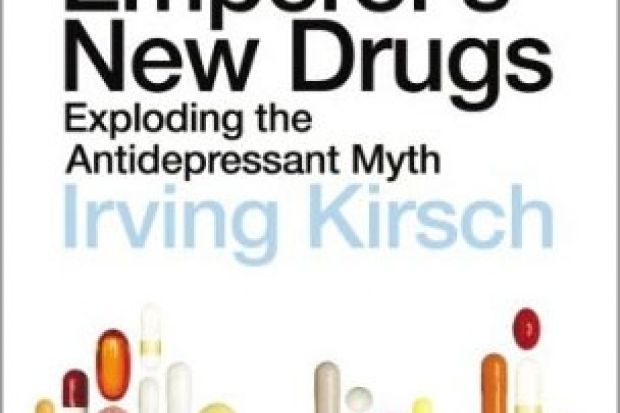This is an addition to a steadily accumulating literature, aimed at the non-specialist, suggesting that all is far from well with the established understanding of "clinical depression" and its treatment.
The author's central case, argued at length and in some detail, is that the principal drugs used for the alleviation of depression - indeed all drugs used in this respect - are in fact no more effective than placebos. He is at pains to point out that this does not mean that the drugs don't work, but that the success they do have is not due to any specific pharmacological ingredient but rather to patients' belief in their efficacy.
His argument is built on three pillars: first, that analyses of trials, in particular those submitted to the regulatory authorities by drug companies, do not statistically demonstrate effectiveness for the drugs concerned. Second, the theory of the "chemical imbalance" of brain functioning, which in recent times has supplied the rationale for drug treatment of depression, is fatally flawed. Third, consideration of the scientific literature on the placebo effect offers the most satisfactory explanation of the results obtained in drug trials to do with the treatment of depression.
Kirsch's particular expertise has been in conducting, together with various colleagues, a series of meta-analyses of published studies of the effectiveness of drug treatment (as well as some unpublished studies obtained under the Freedom of Information Act). His research is reported in the somewhat bland documentary style that seems to have become popular in "scientific" books aimed at the general reader, and one is invited, though often indirectly, to take a lot on trust. We are assured, for example, that "the dust has settled" on the once contentious technique of meta-analysis (a procedure in which, metaphorically speaking, apples, oranges and an unspecified fruit are confidently blended on the assumption that the resulting liquid has revelatory properties). The standard procedures of research are largely unquestioned and, for example, the ubiquitous use of simple questionnaires to "measure" depression is unchallenged. Conventional diagnosis is also accepted pretty well at face value. While the methods of Kirsch and colleagues may well be no more questionable than those used in the studies they are criticising, the reader is given little chance of developing his or her own critique.
Kirsch's account of the background and assumptions of the "chemical imbalance" theory of depression is helpfully clear, and his damning critique convincing. Similarly, his explanation of placebos and how they work allows the reader to get to grips with some fascinating possibilities. His general conclusions, however, are less satisfactory.
Although he does make an attempt not to let mind drift too far from body, Kirsch's main conclusion that belief is heavily implicated in both the causes and cures of depression does tend to detach the sufferer from the material world in which she or he lives, and he is sympathetic to "the premise that emotions are not caused by the things that happen in our lives, but rather by the way in which we interpret those events". The possibility that the opposite might be the case is considered in six paragraphs at the end of the book, but with no recognition that, if true, it would greatly diminish the significance of what has gone before.
The Emperor's New Drugs: Exploding the Antidepressant Myth
By Irving Kirsch
The Bodley Head, 240pp, £11.99
ISBN 9781847920836
Published 3 September 2009
Register to continue
Why register?
- Registration is free and only takes a moment
- Once registered, you can read 3 articles a month
- Sign up for our newsletter
Subscribe
Or subscribe for unlimited access to:
- Unlimited access to news, views, insights & reviews
- Digital editions
- Digital access to THE’s university and college rankings analysis
Already registered or a current subscriber? Login
